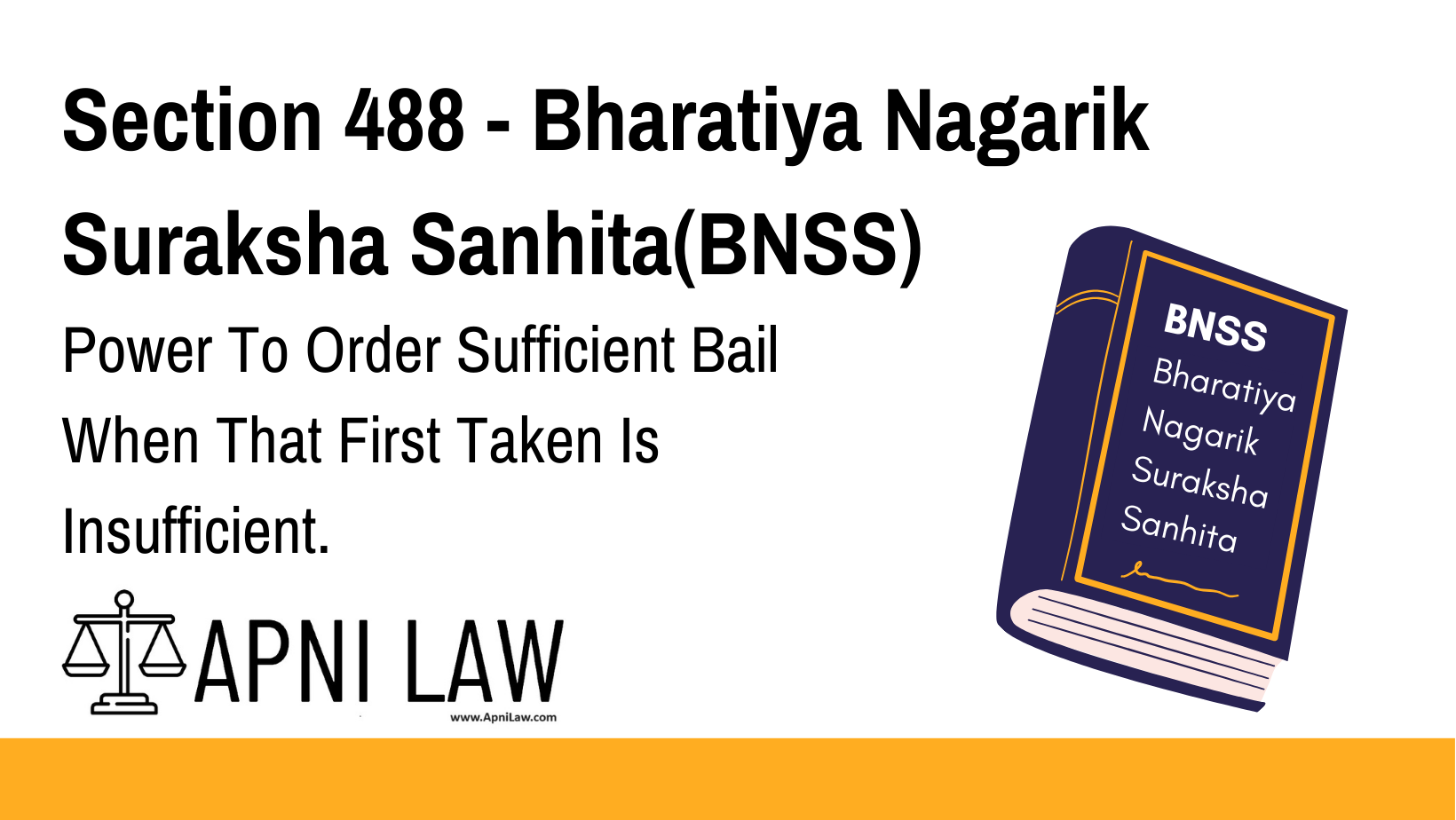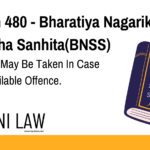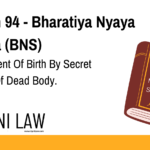Code: Section 488 BNSS
Power to Order Sufficient Bail in Case of Insufficient Sureties
If, through mistake, fraud or otherwise, insufficient sureties have been accepted,
or if they afterwards become insufficient, the Court may issue a warrant of arrest directing
that the person released on bail be brought before it and may order him to find sufficient
sureties, and, on his failing so to do, may commit him to jail.
Explanation of Section 488 BNSS
Section 488 empowers the Court to take action if it discovers that the sureties accepted for a person’s release on bail were insufficient. This insufficiency can be due to various reasons such as a mistake, fraud, or other circumstances. If the sureties initially provided are found to be inadequate or become insufficient later, the Court has the authority to issue a warrant for the arrest of the person released on bail. The individual will then be brought before the Court, where they will be ordered to provide sufficient sureties. If the person fails to do so, the Court can commit them to jail until the proper sureties are provided.
Illustration
Example 1: Insufficient Sureties Discovered After Bail
A person is released on bail, but the sureties provided are later found to be insufficient due to fraud. The Court issues a warrant for the person’s arrest and brings them back before the Court. The individual is then ordered to provide new sureties. If they fail to do so, they are committed to jail.
Example 2: Failure to Provide Sufficient Sureties
A person’s bail is granted, but the Court later determines that the sureties provided are insufficient. The Court issues an arrest warrant, and upon the person’s return to Court, they are ordered to find sufficient sureties. Since they fail to do so, the Court orders their detention in jail.
Common Questions and Answers on Section 488 BNSS
1. What happens if the sureties provided for bail are insufficient?
- Answer: If the sureties are insufficient, the Court may issue an arrest warrant, bring the person back to Court, and order them to find sufficient sureties. If they fail to do so, they may be committed to jail.
2. Can insufficient sureties be discovered after bail is granted?
- Answer: Yes, insufficient sureties can be discovered after bail has been granted. In such cases, the Court has the authority to take corrective action, including arresting the person and requiring them to provide sufficient sureties.
3. Can the Court commit the person to jail if they fail to find sufficient sureties?
- Answer: Yes. If the person fails to provide sufficient sureties after being ordered to do so, the Court can commit them to jail.
Conclusion
Section 488 of the BNSS gives the Court the authority to act if it discovers that the sureties accepted for a person’s bail are insufficient. This ensures that the bail process remains secure and that individuals who cannot provide adequate sureties are held accountable. The provision allows the Court to issue arrest warrants and require new sureties, ensuring justice is served.








